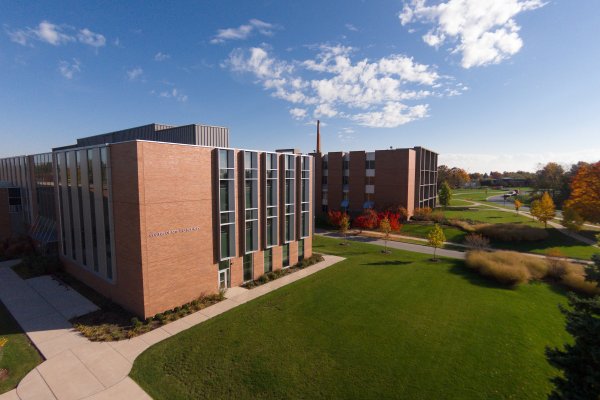Winter Weather
Winter weather advisory means that periods of snow will cause travel difficulties. Be prepared for slippery roads, limited visibility, and use caution when driving. This may also include extreme cold temperatures and limited outside activities are advisable.
Familiarize yourself with the terms that are used to identify winter weather
- Freezing Rain creates a coating of ice on roads and walkways.
- Sleet is rain that turns to ice pellets before reaching the ground. Sleet also causes roads to freeze and become slippery.
- Winter Weather Advisory means cold, ice and snow are expected.
- Winter Storm Watch means severe weather such as heavy snow or ice is possible in the next day or two.
- Winter Storm Warning means severe winter conditions have begun or will begin very soon.
- Blizzard Warning means heavy snow and strong winds will produce a blinding snow, near zero visibility, deep drifts and life-threatening wind chill.
- Frost/Freeze Warning means below freezing temperatures are expected.
- When a Winter Storm WATCH is issued
- Listen to NOAA Weather Radio, local radio, and television stations, or cable television such as The Weather Channel for further dates.
- Be alert to changing weather conditions.
- Avoid unnecessary travel
- When a Winter Storm WARNING is issued
- Stay indoors during the storm.
- If you must go outside, several layers of lightweight clothing will keep you warmer than a single heavy coat. Gloves (or mittens) and a hat will prevent loss of body heat. Cover your mouth to protect your lungs.
- Walk carefully on snowy, icy, walkways.
- If the pipes freeze during University hours call the Facilities Management work order desk at 464-6864. After hours call University Police at 464-5430.
- Do NOT use electric or kerosene heaters they can be a fire hazard and build-up of toxic fumes.
- Avoid traveling by car in a storm, but if you must…
- Carry an Emergency Supply Kit in the trunk.
- Keep your car’s gas tank full for emergency use and to keep the fuel line from freezing.
- Let someone know your destination, your route, and when you expect to arrive. If your car gets stuck along the way, help can be sent along your predetermined route.
- Eat regularly and drink ample fluids, but avoid caffeine and alcohol.
- Conserve fuel, if necessary, by keeping your residence cooler than normal. Temporarily close off heat to some rooms.
Watch for signs of frostbite. These include loss of feeling and white or pale appearance in extremities such as fingers, toes, ear lobes, and the tip of the nose. If symptoms are detected, get medical help immediately. Watch for signs of hypothermia. These include uncontrollable shivering, memory loss, disorientation, incoherence, slurred speech, drowsiness, and apparent exhaustion. If symptoms of hypothermia are detected, get the victim to a warm location, remove wet clothing, warm the center of the body first, and give warm, non-alcoholic beverages if the victim is conscious. Get medical help as soon as possible.
The University will make one of three announcements using the Emergency
Notification System and update on the web at http://www.valpo.edu/alert.
1. Winter Weather Conditions … Alert!
Due to predicted weather conditions, watch for delay or closure updates on Valpo’s alert page.
2. Winter Weather Delay … Alert!
Due to inclement weather conditions, classes have been delayed. Watch for updates on Valpo’s alert page.
3. Winter Weather Closure … Alert!
Due to inclement weather conditions, classes have been canceled. Watch for updates on Valpo’s alert page.
